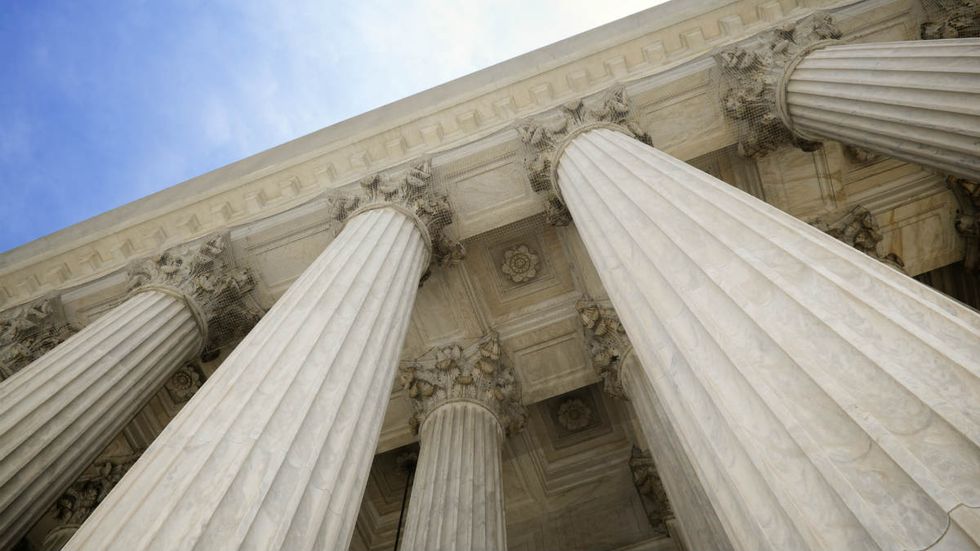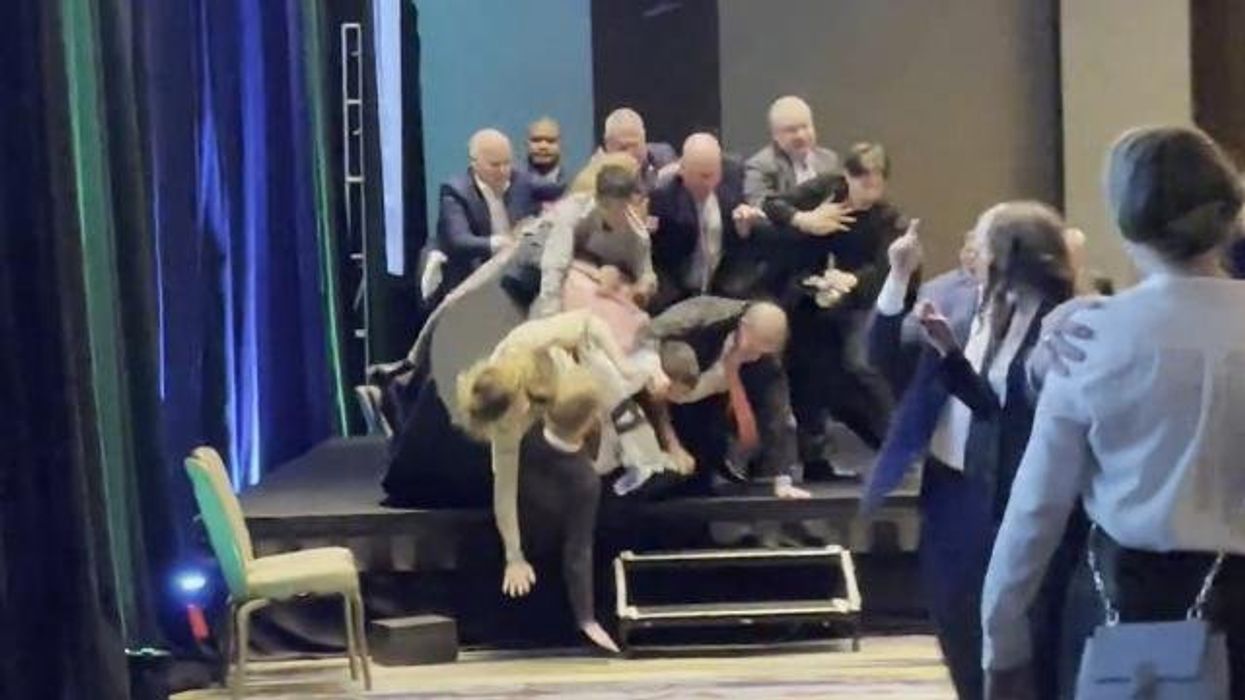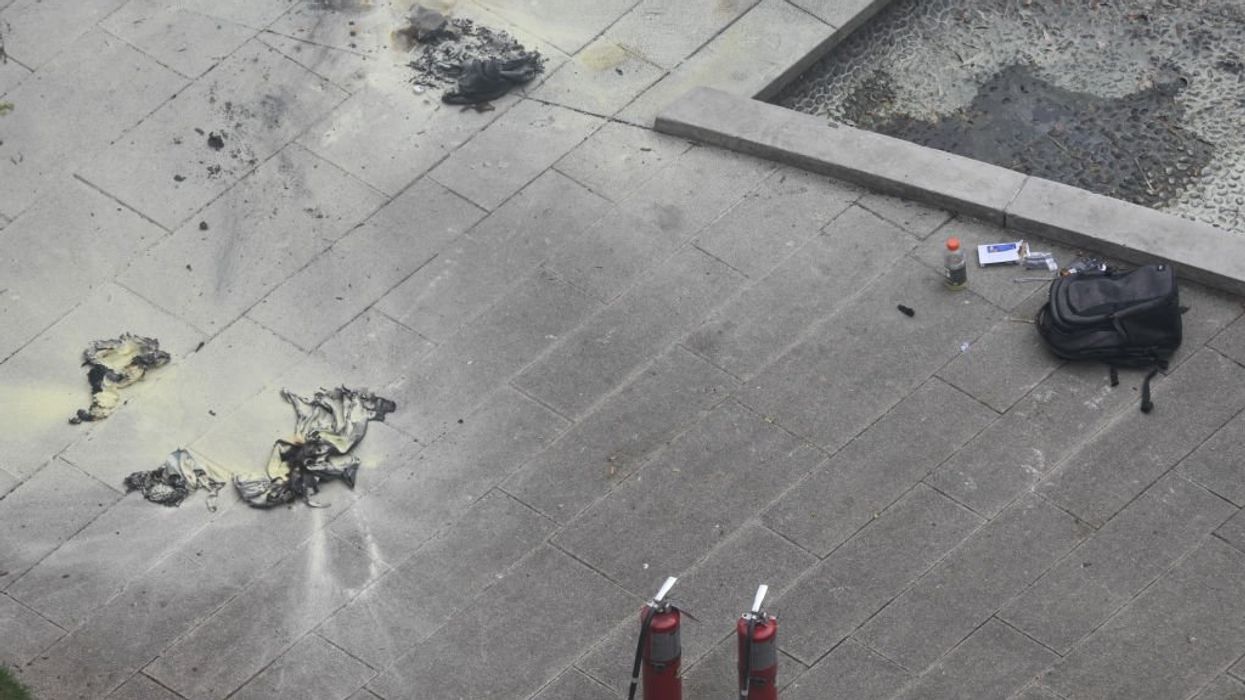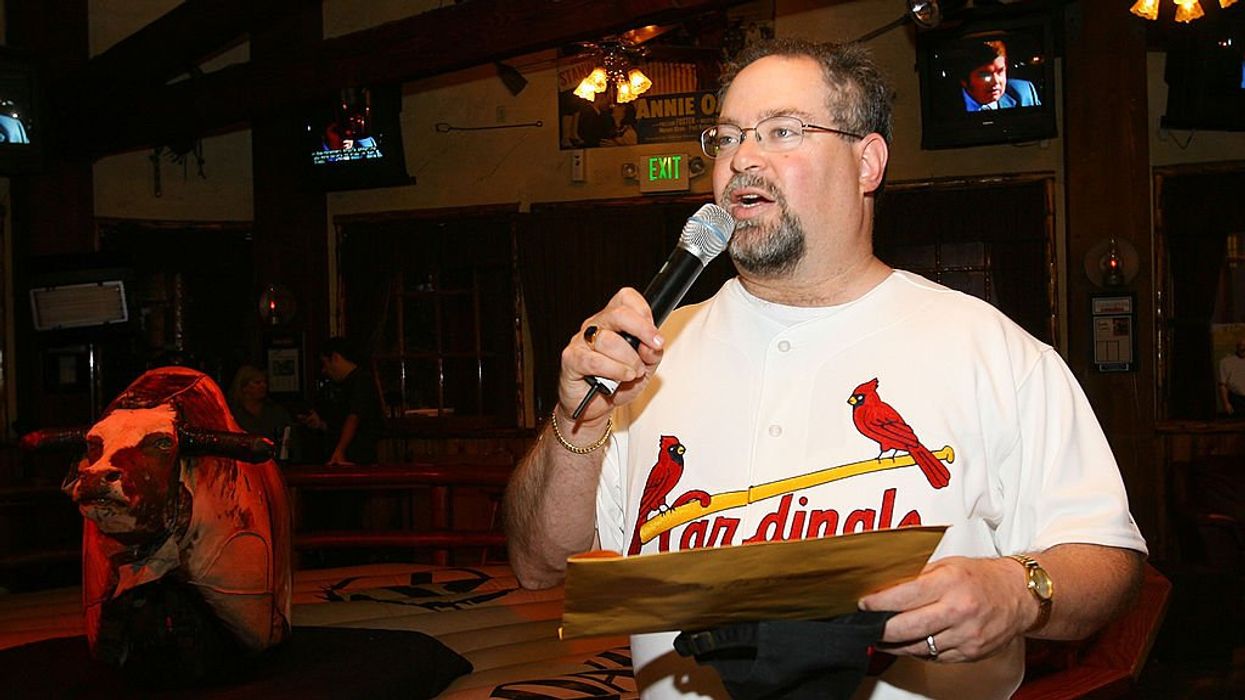
© 2024 Blaze Media LLC. All rights reserved.
Why are the Democrats fighting so hard to prevent the president from performing his constitutional function of nominating Supreme Court justices and the Senate from performing its function to advise and consent? Why the nuclear warfare over the weakest branch of government while both parties amicably agree about the power of the purse, which is manifestly more important and impactful?
It has become clear that every Supreme Court vacancy will trigger the type of thermonuclear fight we are seeing today. And for good reason. If we are going to crown the Supreme Court as God with the ability to immutably determine the outcome of every issue until the end of times, then you better believe there will be a no-holds-barred brawl over every nominee. But it’s only a fight because we’ve placed the outcome of the entire political war in the hands of “the Anthony Kennedy seat.”
The Founders would laugh at such a spectacle over a Supreme Court nominee. It’s not that they didn’t engage in mortal combat over politics. The presidential election of 1800 between John Adams and Thomas Jefferson took the cake. It’s just that they only envisioned such desperate politicking over offices that actually mattered to the character of the nation, such as the election of a president. The Supreme Court did not hold such offices.
Here is how much influence the Supreme Court had besides interpreting banal statutes, back when we followed the blueprint accepted by our nation in 1789.
Just as the nascent republic was getting off the ground in April 1789, James Wilson, one of the greatest Founders and perhaps the greatest legal mind of the generation, personally lobbied President Washington to be nominated as chief justice of the United States. It’s not that he thought this position would be on par or even greater than that of president. It’s that as the consummate legal nerd of his time, Wilson felt his calling in life was to adjudicate complex cases and controversies, not to be a politician. Unlike the other Founders of similar prominence, he is the only one never to have served in a political position after the government was established.
Interestingly, Washington passed over Wilson for the job and instead selected John Jay. Jay was a flashy diplomat, politician, and war hero but was clearly not a scholar like Wilson. Washington did selected Wilson as one of the original associate justices, and it was during his time on the court that he delivered his famed series of legal lectures, among the most scholarly legal works in American history.
During Jay’s six years on the court, he heard only four cases. He was mainly preoccupied with politics. He even served as acting secretary of state for the first six months of his tenure as chief justice. He left the court even before George Washington retired, eventually became governor of New York, and launched a failed bid for president. He was a politician at heart, and at the time, the last place for an ambitious politician was the Supreme Court. He hated the job of chief justice. Then, in 1801, President John Adams offered Jay the opportunity to return as chief justice. Jay responded in a way that nobody in Washington could relate to today, but is nonetheless very revealing as to the power of the federal courts during our founding generation:
Such was the temper of the times, that the Act to establish the Judicial Courts of the United States was in some respects more accommodated to certain prejudices and sensibilities, than to the great and obvious principles of sound policy. Expectations were nevertheless entertained that it would be amended as the public mind became more composed and better informed; but those expectations have not been realized, nor have we hitherto seen convincing indications of a disposition in Congress to realize them. On the contrary, the efforts repeatedly made to place the judicial department on a proper footing have proved fruitless.
I left the bench perfectly convinced that under a system so defective it would not obtain the energy, weight, and dignity which are essential to its affording due support to the national government, nor acquire the public confidence and respect which, as the last resort of the justice of the nation, it should possess.
Jay turned down a life-tenured job as chief justice because he felt the courts had no ability to shape politics, and as a politician, he found such a job unappealing. Also, remember that Congress controls the entire jurisdiction of the Supreme Court (except for a few cases), and Jay lamented that Congress barely gave it any power in the Judiciary Act of 1789, which wasn’t signed into law until after Jay had already accepted the position as chief justice.
To give you a sense of how unremarkable the high court was at the time, James Wilson himself, while sitting on the court, spent time in debtor’s prison because of bankruptcy. Talk about prestige!
The moral of the story? All the power over politics and the judiciary itself lies with Congress. So if we are going to tear each other apart and destroy people in the court of public opinion in pursuit of power, let’s at least confine this spectacle to congressional and presidential elections, where the consequences are directly determined by voters. Why outsource our political warfare to an unelected branch, when the entire purpose of not electing judges was to ensure that politics never seeped into the courts in the first place?
#mc_embed_signup{background:#fff; clear:left; font:14px}
/* Add your own MailChimp form style overrides in your site stylesheet or in this style block.
We recommend moving this block and the preceding CSS link to the HEAD of your HTML file. */
Want to leave a tip?
We answer to you. Help keep our content free of advertisers and big tech censorship by leaving a tip today.
Want to join the conversation?
Already a subscriber?
Blaze Podcast Host
Daniel Horowitz is the host of “Conservative Review with Daniel Horowitz” and a senior editor for Blaze News.
RMConservative
Daniel Horowitz
Blaze Podcast Host
Daniel Horowitz is the host of “Conservative Review with Daniel Horowitz” and a senior editor for Blaze News. He writes on the most decisive battleground issues of our times, including the theft of American sovereignty through illegal immigration, theft of American liberty through tyranny, and theft of American law and order through criminal justice “reform.”
@RMConservative →more stories
Sign up for the Blaze newsletter
By signing up, you agree to our Privacy Policy and Terms of Use, and agree to receive content that may sometimes include advertisements. You may opt out at any time.
© 2024 Blaze Media LLC. All rights reserved.
Get the stories that matter most delivered directly to your inbox.
By signing up, you agree to our Privacy Policy and Terms of Use, and agree to receive content that may sometimes include advertisements. You may opt out at any time.



